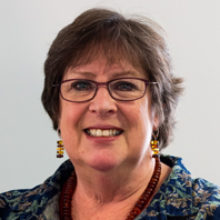From the President
Issue: Metabolism, Health and Disease
07 May 2019 article

The Microbiology Society’s 75th anniversary activities for 2020 are gaining momentum. You may be aware of the recently launched United Nations Sustainable Development Goals (UN SDGs) project, A Sustainable Future, and our call for evidence. We are seeking your views to find out how microbiology can and does contribute to achieving the UN SDGs. We would welcome your input and response to this ambitious project to showcase the impact of microbiology and how it relates to the 17 goals that will transform our world. The questionnaire can be found on the SDGs area of the website.
As part of the 75th anniversary celebrations we will be extending the Annual Conference in 2020 so it runs over five days, with the first day showcasing our Fleming Prize winners. This event will outline a vision for the future impact of microbiology on science and society and will reflect on some of the science that outstanding microbiologists, at all career stages, are involved in to overcome global challenges. More information on the programme will be announced on our website later in the year.
I enjoyed my first Annual Conference as President of the Microbiology Society and attending talks on the range of microbial science the Conference celebrates. I was truly inspired by the work of my fellow microbiologists and am keen to find out more about the work taking place across the UK and Ireland. I hope to meet you at one of the upcoming Roadshow events, taking place in Dublin, Plymouth, Manchester and Liverpool in Autumn. I was really heartened by the warm welcome I received at the Leeds and Newcastle Roadshow events in March. I enjoyed meeting members at these events and finding out more, not only about their research but also their concerns for the future and possible ways in which the Society might help.
The Focused Meeting series for 2019 begins in June with two events, one on anaerobes and the second on yeasts. You can find out more about these events and three further Focused Meetings taking place later in the year on pages 80–81. Another key event in the Society calendar is the Early Career Microbiologists’ (ECM) Forum Summer Conference 2019, taking place in Dublin on 21–22 June. The Society is keen to create a supportive environment for those starting out in their career, with peer-led sessions to help enhance the professional development of researchers. If you are an early career researcher, it is a great opportunity to build networks and develop your skillset.
When presenting work, there is also the consideration of publishing your research. The publishing landscape has changed significantly in the last decade and continues to change, with a range of terminology and different ways to publish that we all need to be aware of. To the uninitiated it can be difficult to navigate. Our Journals Team can help your understanding of the process with an article on pages 84–85 on Open Access, outlining how this works.
The Microbiology Society journals provide the microbiology community with a place to publish their findings. This now also includes our new journal, Access Microbiology, which will publish replication studies, negative or null results, research proposals, data management plans, additional research methods and interdisciplinary work. Articles published are free to read and currently free to publish, as article processing charges are waived at the current time.
I will soon be stepping away from publishing research articles and running a lab to focus more on my role at the Society and a range of other commitments. On reflection, looking back at my career to date, I see that the key milestones and points where I have forged ahead were built on collaboration, adaption and the willingness to search for answers when I was uncertain of the outcome. As we face changes such as AMR, opportunities in genome research and an increasing understanding of the importance of microbial communities, I continue to be amazed by the microbial world and its key role in our continued existence. I am determined to champion the field and help ensure microbiology is firmly on the agenda, helping support you in finding the answers to some of the significant challenges our community faces.
Judith Armitage
President
[email protected]
